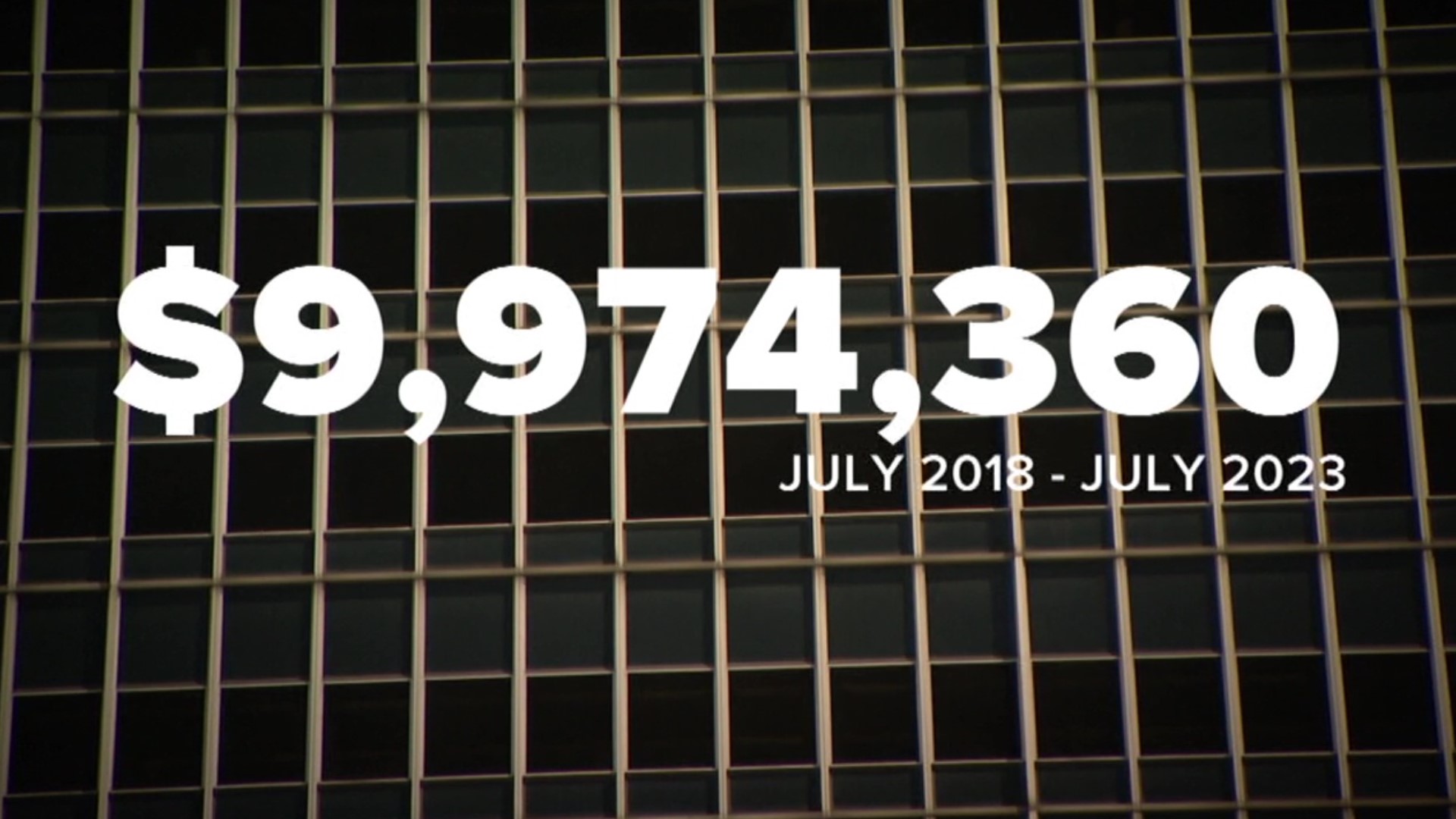INDIANAPOLIS — Bill Rainsberger spent nearly five years fighting Indianapolis police after he was arrested and accused of killing his mother. The prosecutor dropped the charges. Rainsberger sued and then signed a settlement agreement with the city. He was surprised IMPD wanted him to stay quiet as part of the half-million-dollar settlement.
"They tried to do that with me,” Rainsberger said. “You put me in jail for two months and you don’t want me to talk about it?”
13 Investigates showed between July 1, 2018 and July 1, 2023 the city spent at least $9.9 million to settle claims involving police officers and the department. Calculating exactly how much money was spent to settle claims is difficult because the city reports it maintains records in a variety of ways.

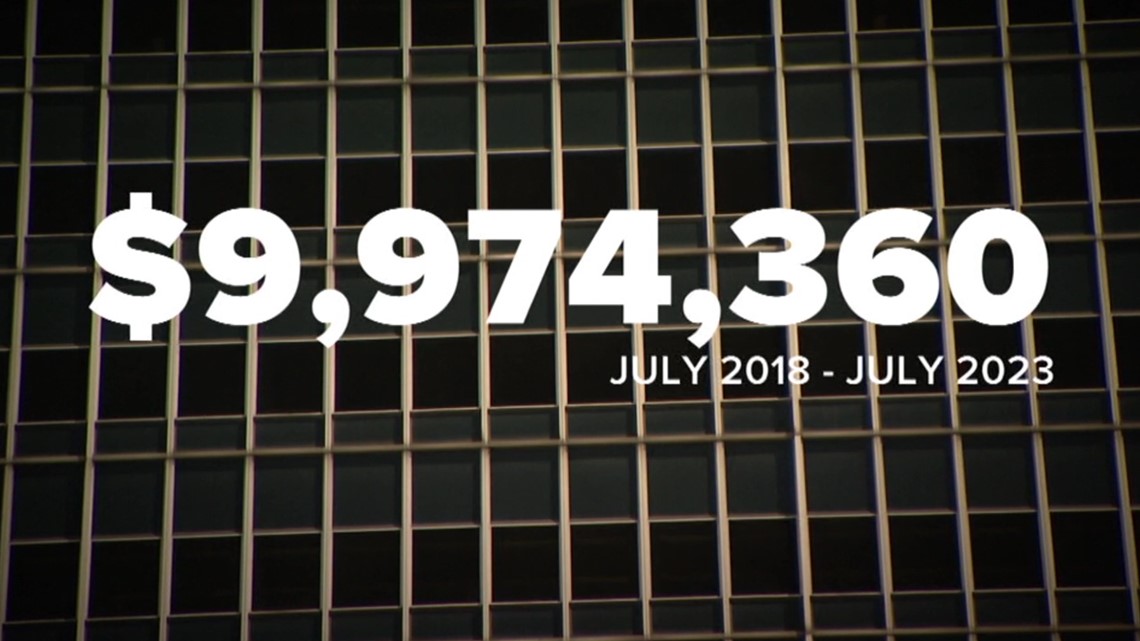
It is also difficult to determine the circumstances that led to a settlement. The agreements are often vague and include a confidentiality and non-disparagement clause.
The Office of Corporation Counsel tells 13 Investigates that clause is standard in settlement agreements involving police and other departments. 13 Investigates found 86% of the 190 contracts we reviewed related to police settlements had a confidentiality and non-disparagement section.
Rainsberger's loss
Settlement agreements rarely spell out exactly why the city is paying or the facts of a situation that led up to a dispute. 13 Investigates turned to court records to get a better understanding of why an agreement was reached.
That’s how we learned about the Rainsberger case. IMPD arrested him in 2014 for the 2013 murder of his 88-year-old mother, Ruth. Ultimately, two courts agreed a jury could reasonably find there was not enough evidence for the arrest, and he had the right to sue.

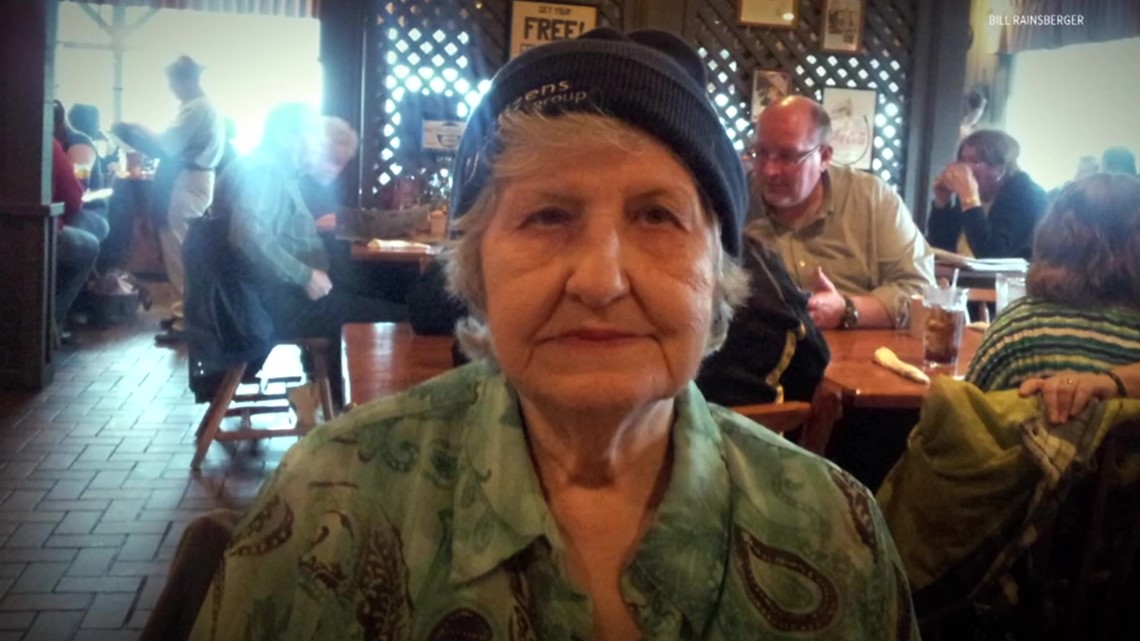
Rainsberger still remembers his first day at the county jail.
“A couple of people threatened to kill me," he said.
In 2013, Rainsberger said he found his mother unconscious and badly bleeding in her apartment on the city’s east side. An ambulance rushed her to the hospital. Police reports confirm Rainsberger immediately cooperated with officers.
“My brother and I both, naively, in retrospect, went down and told the police everything,” he said.
Rainsberger became the lead suspect and was arrested. He spent two months in jail before a judge granted him bail. Ultimately, the prosecutor dismissed the charges due to evidentiary problems. Rainsberger sued and accused the lead detective of lying in the probable cause affidavit that explains why someone is under arrest.


Two federal courts found there were misleading or false statements about surveillance video, DNA evidence and phone records. The courts believe a jury could find the detective made those statements intentionally which meant the officer could be sued.
Supreme Court Justice Amy Coney Barret wrote the opinion from the Seventh Circuit Court of Appeals:
"If probable cause exists here, then anyone who experiences the tragedy of discovering a murdered family member—and who correctly assesses the cause of the injury and recently threw something away in a public trash can—can be arrested for murder. Probable cause is a low bar, but this evidence does not clear it."
After nearly four years of fighting in court, Rainsberger and the city reached a settlement instead of going to trial. Rainsberger said having two federal courts side with him was a win.
"It just reinforced the whole thing that I got railroaded,” he said.
The city paid Rainsberger $490,000. He hoped the substantial amount would deter detectives from using misleading and false information in arresting documents. Rainsberger said most of the money was used to pay his legal bills and taxes.
Payout breakdown
Rainsberger’s payout is one of the most expensive police settlements reviewed. 13 Investigates requested and reviewed 492 city-county settlement agreements and found 190 involved IMPD. Those agreements amounted to at least $9,974,360. The city is self-insured and uses tax dollars to pay for the agreements.
The Office of Corporation Counsel oversees negotiating and keeping track of those settlements. It says settlement payments are tracked a few different ways. Sometimes it’s based on how a case originates. Agreements prompted by litigation may be kept in one system while those drafted following a tort claim may be in another. In other cases, an outside firm or counsel is handling the agreement which could mean some agreements are not part of OCC records or it is difficult to know which department paid for the settlement.

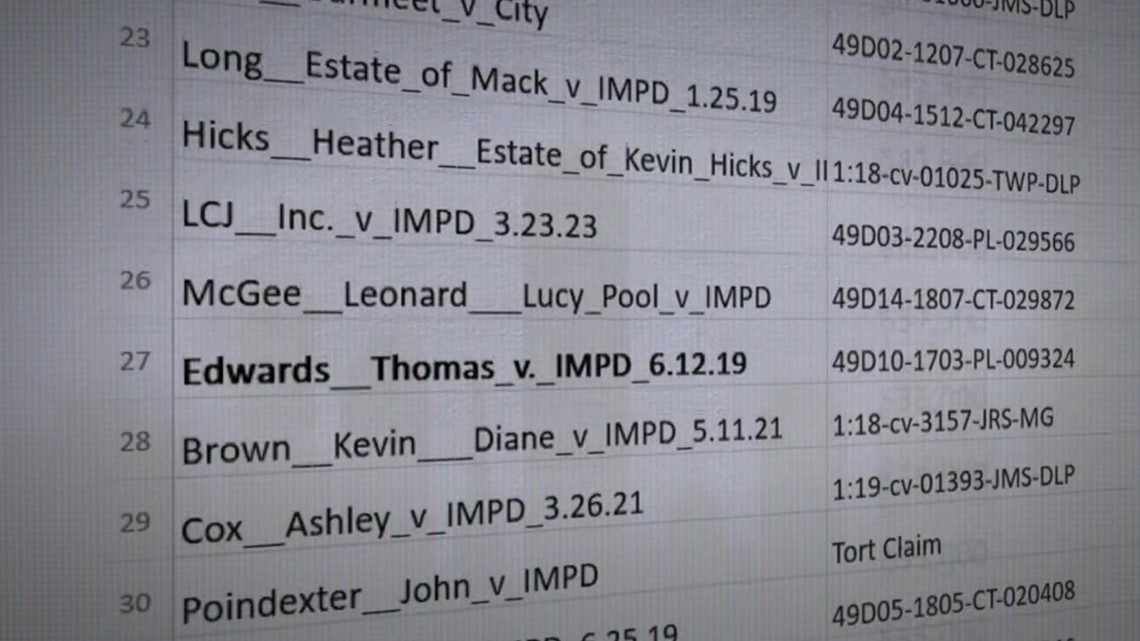
As a result, 13 Investigates found it is complicated to calculate exactly how much the city spends each year to settle claims against IMPD and its officers. 13 Investigates spent weeks combing through settlement agreements and adding up the cost.
Analysis by 13 Investigates found about half of all payouts were amounts of $10,000 or less. Accusations of excessive force and civil rights violations result in the most expensive settlements during that five-year period - $7,862,155 - all tax dollars.
The most expensive agreement during the five-year span 13 Investigates reviewed was for $2,150,000. The case involved an unarmed man who was shot in the back by police. The least expensive settlement was for just over $100 and involved a dispute over property damage. Vehicle crashes are the most common reason for a settlement, making up nearly half of all the payouts reviewed.
“I got hit so hard until I was knocked into the intersection,” Andre Davis-Smith said.
Davis-Smith received a settlement after an officer rear-ended him in 2017. The crash resulted in three payouts totaling $60,500. One for Davis-Smith and two additional agreements for his passengers.

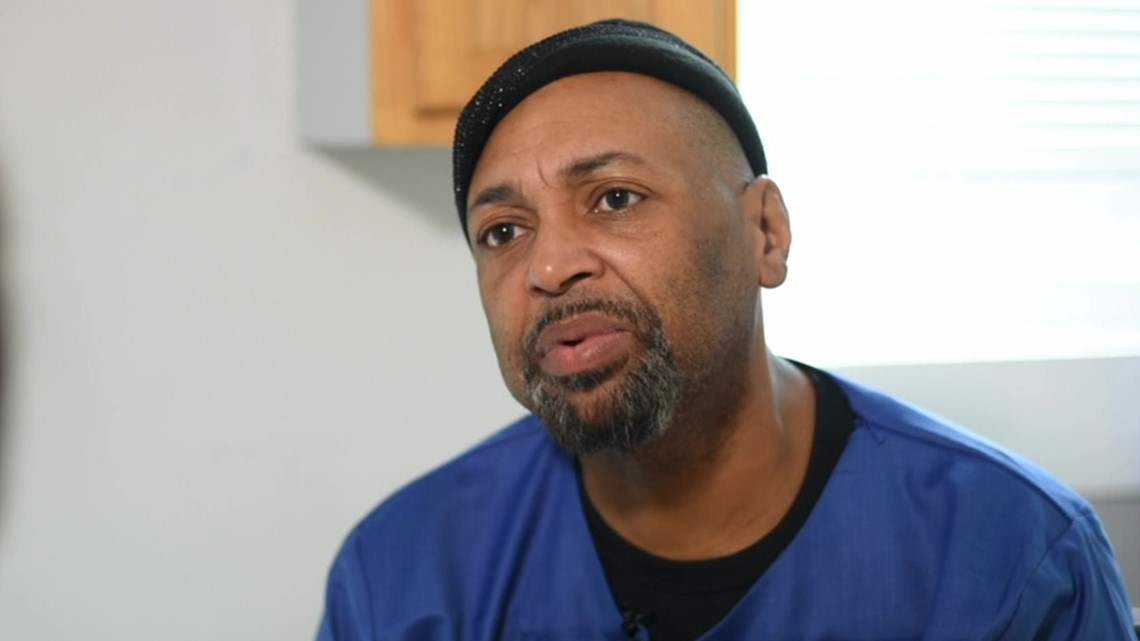
In hindsight, Davis-Smith doesn’t think his settlement amount was enough money. Most of the money went to cover attorneys’ fees and medical expenses, and he said he continues to deal with pain from the accident.
“But I agreed to it when I signed off,” he said. “So I'm not trying to go back and rehash that part. I think when you accept something, you accept. You don't try to go back on that.”
Kevin Brown and his wife, Dianne, launched a legal fight against IMPD after a 2016 traffic stop. They say a police officer approached their vehicle with a gun drawn. Both Browns ended up in handcuffs, and Kevin spent 20 hours in jail before being released. Prosecutors ultimately dropped the most serious charge, such as fleeing arrest and resisting arrest. Kevin admitted to changing lanes without using a turn signal.

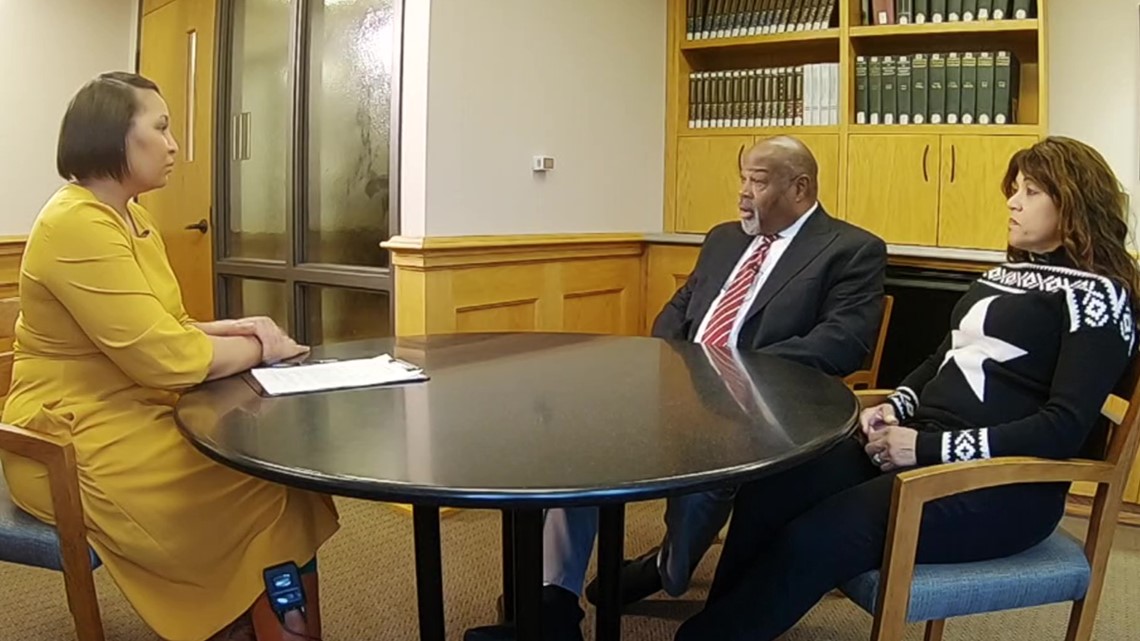
Brown, who is a law professor, told 13 Investigates his fight was about more than money. “It was the message. It was saying, look, there are going to be Black people who are going to fight back."
The city agreed to pay $43,250, and Kevin said he thinks that was fair.
The couple also received a rare written apology.
"The settlement at least makes it clear that they did something wrong,” Kevin said. “They admit that they did something wrong, they paid for it."
Playing hardball
Brown’s experience is unusual. Most agreements explicitly state it “should not be construed as an admission of any liability or wrongdoing.” That’s the wording in Davis-Smith’s agreement. Even though he said after he was rear ended, the officer apologized.
“The officer was very calm. He admitted the fault right away,” he said.
Davis-Smith praised the officer’s handling of the initial incident, but felt differently about the attorneys he dealt with during the settlement process.
“I think first the city should mediate much faster,” he said. “It should not take three years, especially when you're at fault. Take the responsibility.”
Davis-Smith said the process was long and arduous. Reporting he only accepted the settlement amount because the other people involved in his case couldn’t wait any longer for the money.
Davis-Smith, Rainsberger and others told 13 Investigates the city plays hardball when negotiating a settlement.
“They're a bunch of jerks,” Rainsberger said. “The city just fights tooth and nail. Even beyond what you might think they would fight because they don't want to pay out."

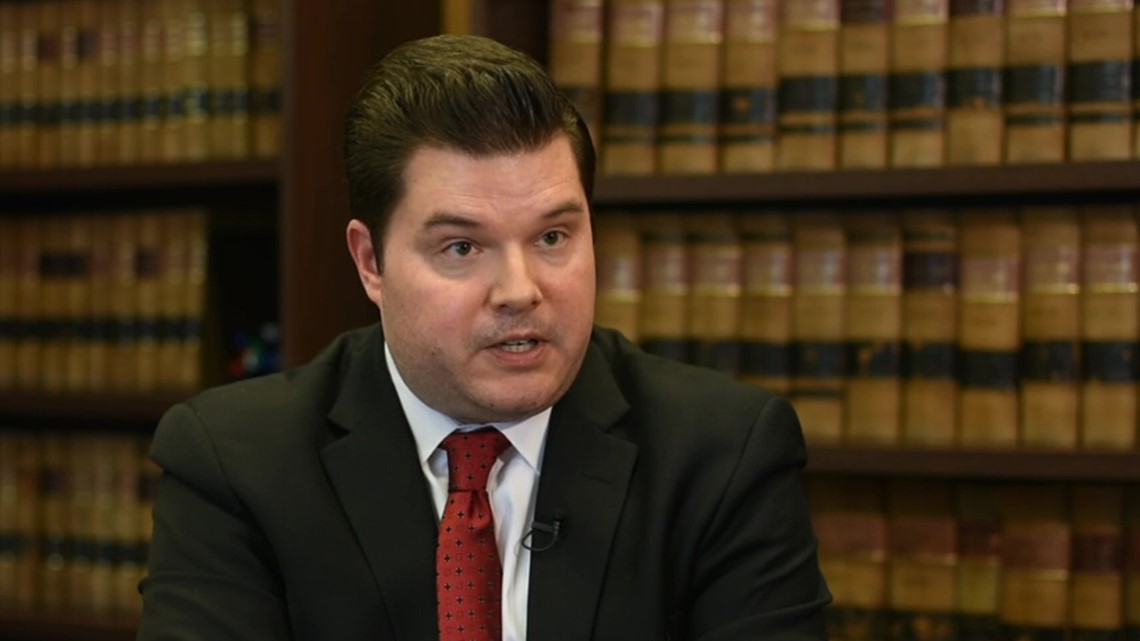
Brandon Beeler is with the Office of Corporation Counsel. The office represents IMPD and other city-county departments during the settlement process.
"The accusation of playing hardball, I don't believe that would be a fair assessment,” Beeler said. “I think it's to remember that our dollars we spend are taxpayer dollars and we are incredibly mindful of that."
Sheila Kennedy used to be the Corporation Counsel for the City of Indianapolis. She said depending on the case, the city should play hardball.
"It is a protection to the taxpayer, in many cases, not all, but in many cases, because you don't want to invite additional lawsuits,” she said.
She said settling is often cheaper than taking a case to trial and does not always mean the city was in the wrong. The exception is if a serious amount of money is paid out.
"If they're paying out a lot of money, they did something wrong,” Kennedy said.
Settle with silence
Whether the city did something wrong or not, it almost always pushes for that confidentiality and disparagement clause.
13 Investigates spoke to people who would not share their stories because of it.
Davis-Smith said he didn’t realize it was in his agreement until 13 Investigates told him. He decided to tell his story anyway.
“Truthfully, I never felt like it was fair,” he said. “I did not get to express myself.”
The Browns were not asked to sign a confidentiality and non-disparagement clause, but Kevin read the one we found in most agreements. He taught criminal law, torts, and civil rights litigation at Indiana University.
"I was actually stunned when I read it,” he said. “If they had asked me to do it, I would have researched it quite thoroughly to see if that ... this violates First Amendment freedom of speech. Because you're allowing the government to basically hide its errors and its mistakes. And it denies the transparency that is critical to making sure that government doesn't abuse its power."
Kennedy didn’t have a problem with the language, especially the portion about non-disparagement.
"Certainly, you don't want people taking the city's money in a settlement and then going out spending a year badmouthing," she said.

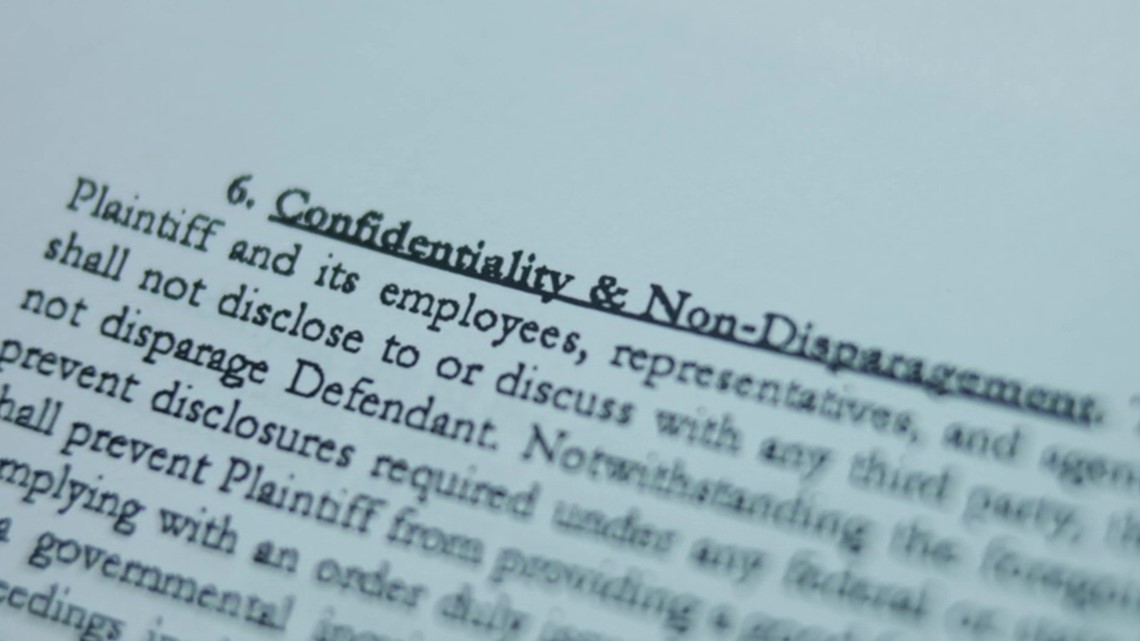
The city says the language is standard.
"So, the confidentiality is more, again, for the protection of each party,” Beeler said.
Pointing out the clause does not prevent disclosure in legal proceedings or tax filings.
Again, Rainsberger refused to sign the clause. He didn’t want anything to prevent him from telling his and his mother’s story.
“I'm angry for what happened to me,” he said. “I thought, 'Well, I'll tell the cops; I'll answer all of their questions because I want them to go out and find who did this,' but it makes me mad that they didn't really investigate much of anything."
No one has been convicted for Ruth’s murder. The city considered the case “cleared by arrest” back in 2014 when Rainsberger was arrested and charged. IMPD now considers the murder of his mother to be a closed case.

